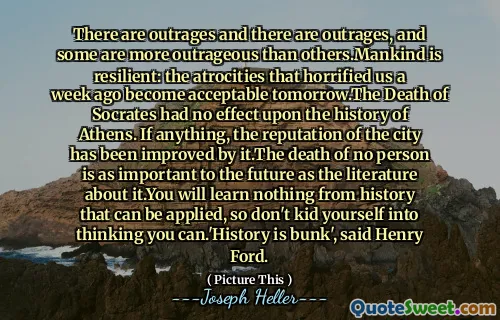
One had to know Plato personally to appreciate the love he suppressed puritanically for the music, poetry, and drama he censured in his philosophy and censored in his model communities. They moved him too deeply.
In Joseph Heller's "Picture This," the author emphasizes the dichotomy in Plato's character, revealing that he had a profound emotional connection to art forms like music, poetry, and drama. Despite this, Plato chose to suppress these passions in his philosophical ideals, advocating for a censored society where such pleasures were minimized. Heller suggests that understanding this aspect of Plato requires a personal insight into his character.
The text explores how Plato's philosophical convictions conflicted with his innate love for artistic expression. This tension highlights the complexities within his beliefs and the impact that this suppression had on his view of ideal communities. Heller's reflection on this personal struggle invites readers to consider the emotional depths behind philosophical doctrines and the sacrifices made in the pursuit of an ideal society.








